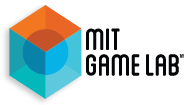Our Team
Faculty
Eric Klopfer
Director, MIT Game Lab
Professor and Director of the Scheller Teacher Education Program and The Education Arcade
Eric Klopfer is Professor and Director of the Scheller Teacher Education Program and The Education Arcade at MIT (link to CV). He is the Head of the department of Comparative Media Studies and Writing. He is also a co-faculty advisor for MIT’s J-WEL World Education Lab. His work uses a Design Based Research methodology to span the educational technology ecosystem, from design and development of new technologies to professional development and implementation. Much of Klopfer’s research has focused on computer games and simulations for building understanding of science, technology, engineering and mathematics. He is the co-author of the books, “Adventures in Modeling”, “The More We Know, and the recently released “Resonant Games”, as well as author of “Augmented Learning.” His lab has produced software (from casual mobile games to the MMO The Radix Endeavor) and platforms (including StarLogo Nova and Taleblazer) used by millions of people, as well as online courses that have reached hundreds of thousands. His work has been funded by federal agencies including NIH, NSF and the Department of Education, as well as the Gates Foundation, the Hewlett Foundation, and the Tata Trusts. Klopfer is also the co-founder and past President of the non-profit Learning Games Network (www.learninggamesnetwork.org).
Courses: CMS.590/CMS.863/11.252 Design and Development of Games for Learning (Spring)
Staff
Rik Eberhardt
Program Manager
As Program Manager for the MIT Game Lab, Rik Eberhardt spends his days playing Tetris, aligning research projects with requisite staff, tasklists, equipment, money, and time. He is also an instructor for MIT Game Lab classes on game production, hosts game jams for students and community members, designer for learning games, and has served as a mentor and director for multiple game development projects including elude, an award-winning game for the friends and family of patients with depression, produced in the summer of 2010. He holds a Bachelor of Arts degree from the College of William & Mary and a Serious Games MA Certificate from Michigan State University. He is a Certified Scrum Master and a PMI Agile Certified Practitioner.
Specialties: production, management, postpunk, cats
Games: Abandon (2009), PAX POX (2010), elude (2010), Stranded in Singapore (2011), Fugue (2012), The Last Symphony (2012), Cellverse (2020), Photonics Games (in-progress), Promesa (in-progress)
Courses: CMS.611/6.073J Creating Videogames (Spring; OCW, Fall 2013), CMS.608 Game Design (Fall; OCW, Spring 2014), CMS.617 Advanced Game Studio (Spring)
Mikael Jakobsson
Research Scientist
Mikael Jakobsson conducts research on the border between game design and game culture. With a foundation in interaction design, he investigates how gaming activities fit into social and cultural practices, and how this knowledge can be integrated into the development process. His work has been supported by research grants involving collaboration with several game companies. He has developed and taught courses on game design, game criticism, and interaction design, as well as supervised students at the bachelor’s, master’s and doctoral level. During his stay at MIT, he will serve as Project Manager for the Imagination, Computation, and Expression Laboratory.
Courses: CMS.300 Introduction to Videogame Theory and Analysis (Fall), CMS.301 Introduction to Game Design Methods (Spring)
Philip Tan
Research Scientist
Philip Tan is a research scientist at the MIT Game Lab. He teaches CMS.608 Game Design and CMS.611J/6.073J Creating Video Games at the Massachusetts Institute of Technology. For the past 6 years, he was the executive director for the US operations of the Singapore-MIT GAMBIT Game Lab, a game research initiative.
He has served as a member of the steering committee of the Singapore chapter of the International Game Developers Association (IGDA) and worked closely with Singapore game developers to launch industry-wide initiatives and administer content development grants as an assistant manager in the Media Development Authority (MDA) of Singapore. Before 2005, he produced and designed PC online games at The Education Arcade, a research group at the Massachusetts Institute of Technology that studied and created educational games. He complements a Master’s degree in Comparative Media Studies with work in Boston’s School of Museum of Fine Arts, the MIT Media Lab, WMBR 88.1FM and the MIT Assassins’ Guild, the latter awarding him the title of “Master Assassin” for his live-action roleplaying game designs. He also founded a DJ crew at MIT.
Specialties: digital, live-action and tabletop game design, production and management
Games: A Slower Speed of Light (2012), Shadowspect (2019), Aquapressure (2020), Cellverse (2020)
Courses: CMS.611/6.073J Creating Videogames (Fall; OCW, Fall 2013), CMS.608 Game Design (Spring; OCW, Spring 2014)
Affiliates
Konstantin Mitgutsch
Konstantin Mitgutsch‘s research focuses on learning processes in video games, empirical research on players’ experience, educational game design, and transformative learning in games. He worked in the fields of learning, media studies, computer games and age rating systems at the University of Vienna for several years. In 2010 he was Max Kade Postdoctoral Fellow at the Education Arcade at CMS. In his recent research project he investigates subversive multi-player serious games and different methodologies of game evaluation.
He studied Media Education and Philosophy of Education at the University of Vienna and the Humboldt University Berlin and earned a MA in Education Science, Sociology, Media Studies and Philosophy (2003) and a Ph.D. in 2009. He is participating as an expert member for the Austrian Federal Office for the Positive Assessment of Computer and Console Games and is on the expert council of the Pan European Game Information (PEGI). Since 2007 he organizes the annual Vienna Games Conference FROG.
Mitgutsch is product owner of the MIT Game Lab games Afterland and Movers & Shaker and coeditor of Applied Playfulness (2012) and Schauplatz Computerspiele (Setting Computergames) (2009).
His blog is at www.kmitgutsch.com.
Specialties: learning, serious games, game design
Games: Afterland (2011), Movers & Shakers (2012)
She is a qualitative sociologist who has focused on the interrelations between culture and technology in online environments for over thirty years. Her work sits at the intersection of sociology, critical internet and game studies, and science and technology studies.
